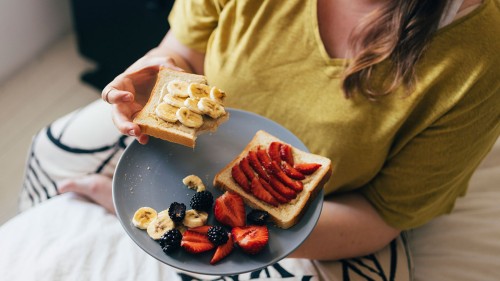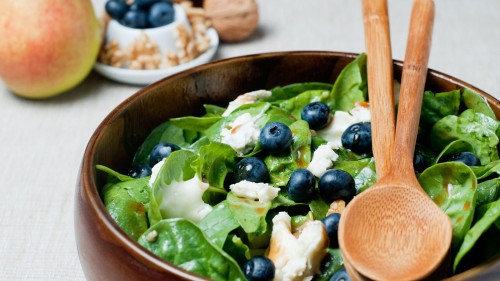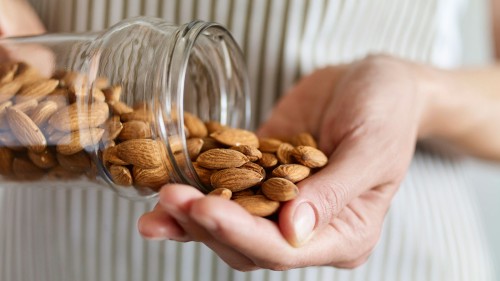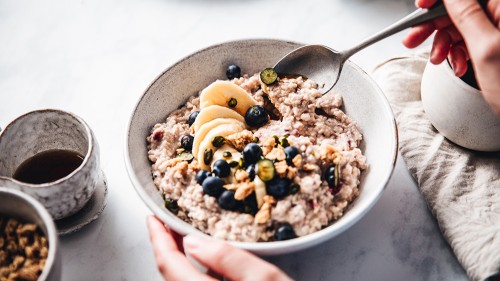The Best Foods for Weight Loss and What Foods to Avoid
Published on February 16, 2021
Medically Reviewed by Ana Reisdorf, MS, RD
No one food will make or break your diet efforts, but some foods make it easier to lose weight. We list the 10 healthiest foods to help you lose weight, as well as foods to avoid.

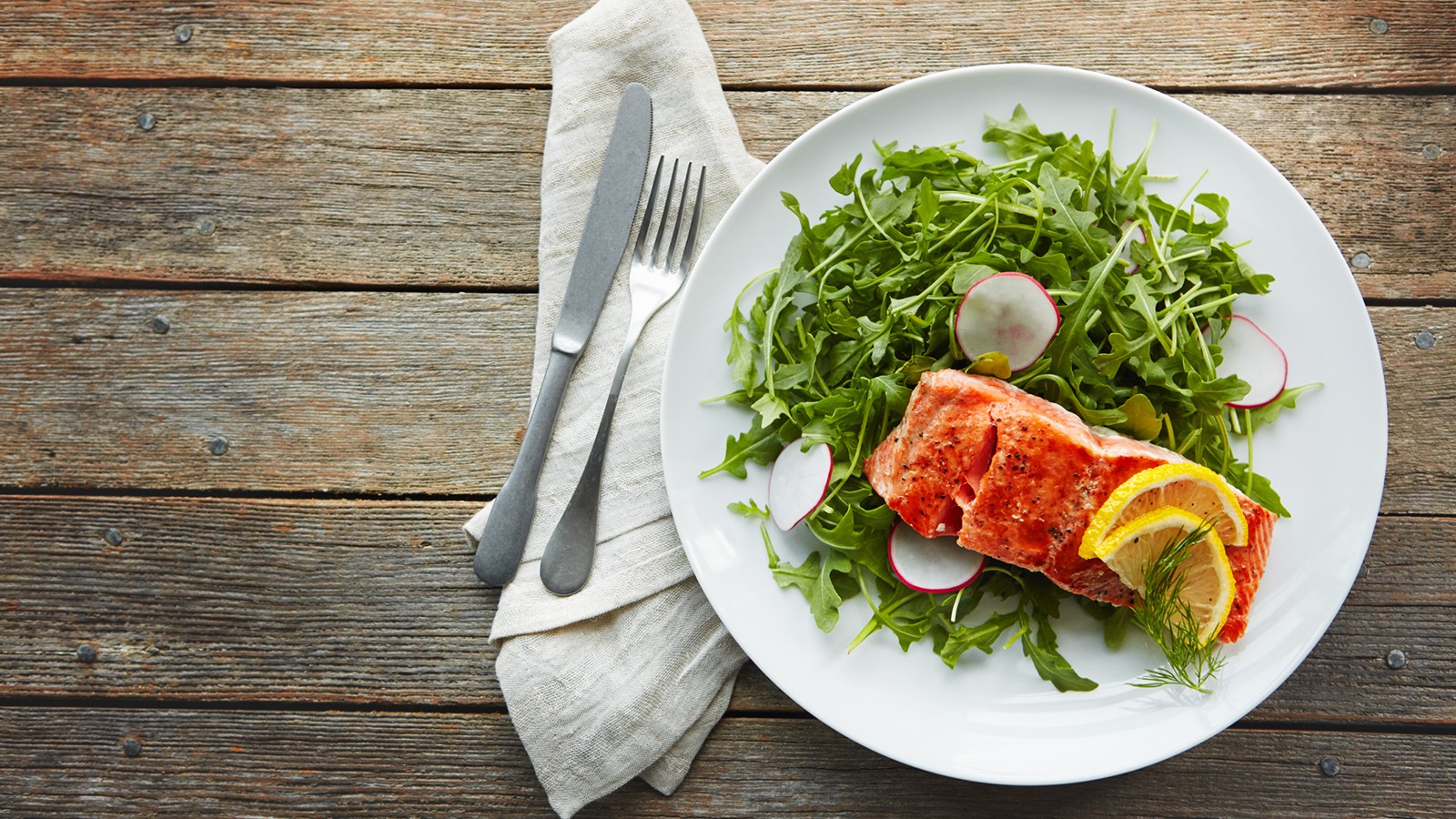
Weight loss is at the forefront of many people’s minds. It seems to be an elusive pursuit that entails ever-changing recommendations and perplexing advice.
For decades, people were told to avoid fat at all costs. For a period of time, fat was the enemy and was blamed for weight gain, heart disease, and other conditions.
Fast forward, and here we are in a carb-free craze. From Atkins to keto, people are ditching carbohydrates in hopes of reaching their weight loss goals.
The problem remains: these weight loss diet trends haven’t worked. We’re still just as heavy (if not more) than we’ve ever been.
Rather than eliminate an entire food group, it may be time (perhaps past time) to explore the basics of healthy food and to focus on what foods to eat to lose weight sustainably.
Below you will find the 10 healthiest foods to help you lose weight. Additionally, we included a list of foods that may be sabotaging your weight loss efforts.
The 10 Best Foods for Weight Loss
1. Beans
Beans are versatile, inexpensive, and pack a powerful punch of weight loss properties.
They are a great source of fiber and protein, both of which have been shown to increase feelings of fullness, which can lead to a decrease in calorie intake.
One study found that including beans in your diet may be a beneficial weight loss strategy because it can lead to modest weight loss even if you’re not restricting your calorie intake. (1)
In fact, researchers suggested that beans can increase a person’s feeling of fullness by over 30%.
Include a variety of beans and legumes in your diet, like lentils, chickpeas, kidney beans, or black beans.
2. Eggs
Rather than relying on a high carbohydrate breakfast like bagels or cereal to kick start your day, eggs are an excellent source of lean protein and may promote weight loss over time.
Some research suggests a relationship between morning egg intake and lower overall caloric intake.
One recent study found that overweight people, who ate two eggs at breakfast, ate less at lunch than those who ate a low-protein, high-carbohydrate breakfast. (2)
3. Nuts
Although high in fat, nuts can help curb cravings and are chock full of protein, healthy fats, vitamins, minerals, and phytochemicals (beneficial compounds found in plants).
One study from the Journal of Research in Medical Sciences suggests that regularly snacking on almonds is linked to weight loss due to boosting metabolism. (3)
Researchers also found that nut consumption decreased triglycerides (fat levels in the blood), total cholesterol, and LDL (bad) cholesterol.
It’s not just almonds that may help decrease your waistline.
A study published in the European Journal of Nutrition found that people who include nuts in their diet are more likely to reduce weight gain and lower their risk of becoming overweight or obese. (4)
4. Salmon
Salmon, often considered a “superfood,” is filled with omega-3 fatty acids, lean protein, and vitamin D.
During one 8-week study on the effects of weight loss and seafood consumption, researchers found that salmon was particularly effective in decreasing inflammation in overweight and obese participants, resulting in weight loss. (5)
5. Cruciferous Vegetables
Cruciferous vegetables include broccoli, cauliflower, cabbage, and Brussels sprouts.
They are a rich source of folic acid, potassium, vitamins C, E, and K. These vegetables are loaded with fiber and are low-calorie: a winning combination for weight loss.
An average serving of cruciferous vegetables has up to 20% of your daily fiber requirement.
Research shows that getting around 30 grams of fiber each day can help you lose weight, lower your blood pressure, and lower diabetes risk factors. (6)
6. Yogurt
Not only is yogurt full of protein, but it is also bursting with probiotics.
Probiotics have the added benefit of boosting your immunity, improving gut function, and decreasing bloating.
A review of the literature suggests that yogurt consumption is associated with lower body mass index, lower body weight, decreased weight gain, smaller waist circumference, and reduced body fat. (7)
One study looked at whether an afternoon yogurt snack improved appetite control, satiety, and reduced subsequent food intake than other commonly-consumed snacks. (8)
Participants who ate yogurt in the afternoon ate 100 fewer calories at dinner and reported greater feelings of satiety than the group that ate crackers as a snack.
Researchers also suggested that the higher the protein content of the yogurt, the more satiating it is.
Stick with unsweetened plain yogurt and try adding fresh fruit. If high protein Greek yogurt isn’t your thing, most yogurts provide adequate protein for you to reap the benefits of this weight-loss-friendly food.
7. Oatmeal
Despite oatmeal being high in carbohydrates, this popular whole grain breakfast item may help you lose that stubborn fat.
The soluble fiber found in oats can lower total cholesterol and LDL cholesterol levels, which can benefit cardiovascular health.
According to researchers, oatmeal may also help control high blood sugar and reduce weight in adults with type 2 diabetes. (9)
Dig Deeper: Top Health Benefits of Oats and Oatmeal
8. Green Tea
Green tea, known for its rich antioxidant properties, is one of the best foods for weight loss.
The weight loss effect is due to a combination of its caffeine content and catechins-potent antioxidants that are plentiful in green tea.
A recent review of the research suggests that people who consume green tea experience a significant decline in body weight and body mass index. (10)
9. Potatoes
It may seem counterintuitive to include a high carbohydrate food on a list of best foods for weight loss, but potatoes have some surprising benefits.
Not only do potatoes contain fiber-rich starch, but they may even promote weight loss.
Researchers in one study concluded that the high amount of resistant starch found in potatoes might increase fat breakdown, reduce levels of fat storage, preserve lean muscle mass, and reduce weight. (11)
You don’t need to stick with sweet potatoes, all potatoes including white ones are high in fiber.
10. Chili Peppers
Besides adding some spice to your meals, chili peppers may also help slim down your waistline.
Some studies have suggested that capsaicin, the active component in chili peppers that makes spicy food feel hot, is associated with health benefits and specifically bodyweight reduction and anti-obesity effects. (12)
5 Foods to Avoid When Trying to Lose Weight
Weight loss involves a combination of reducing calorie intake, increasing physical activity, and eating nutrient-dense foods.
That means trying to avoid foods with empty calories, which can leave you with a sluggish metabolism, making your weight loss efforts that much more difficult.
The following are some examples:
1. Trail Mix
Often described as M&M’s with obstacles, trail mix can be a tempting snack with its ability to satisfy your sweet and salty cravings simultaneously.
Unfortunately, trail mix is packed with an excess of salt and sugar and is calorically dense.
This means that one innocent handful can contain 170 calories, and let’s be honest, who eats just one handful?
2. Sugary Coffee Drinks
The caffeine in your favorite coffee drink may help boost your energy and even your metabolism, but it’s likely wreaking havoc on your waistline.
The flavored frappuccinos, mochas, and lattes that you love are loaded with sugar and excess calories.
The American Heart Association recommends limiting sugar intake to 24 grams per day for women and 36 grams per day for men. (13)
Some coffeehouse drinks contain a whopping 80 grams of sugar. If you need an energy boost, try coffee with a bit of milk or green tea.
3. Chips
Who doesn’t love a salty, crunchy snack? Unfortunately, your favorite chips are highly-processed and likely loaded with fat, salt, and even sugar.
To no one’s surprise, one study found a positive correlation between the consumption of “ultra-processed foods” and obesity. (14)
For more healthy snack options, try less processed food like fruits, vegetables, plain popcorn, or raw nuts.
4. French Fries
As delicious as they may be, overindulging on fries is a sure-fire way to sabotage your weight loss efforts.
Fried foods, including fries, are sky-high in calories, unhealthy fats, and sodium.
Eating fried foods often may even shorten your lifespan. In one study, researchers found that participants who ate fries at least twice a week had a higher risk of premature death than those who ate them less frequently. (15)
5. Granola Bars
Often disguised as a healthy snack, granola bars often contain as much sugar as a candy bar.
Some granola bars also contain artificial additives like trans-fat and high-fructose corn syrup, both of which have been linked with inflammation and obesity.
The Bottom Line
No one food will make or break your diet efforts, but some foods definitely make it easier to lose weight.
A diet rich in whole foods like fruits, vegetables, nuts, whole grains, and yogurt is always associated with weight loss.
Focusing your efforts on nutrient-dense (not calorically-dense) foods that are unprocessed will help you achieve your goals.
At WellnessVerge, we only use reputable sources, including peer-reviewed medical journals and well-respected academic institutions.
- Effects of dietary pulse consumption on body weight: a systematic review and meta-analysis of randomized controlled trials:
https://pubmed.ncbi.nlm.nih.gov/27030531/ - Energy Intake and Satiety Responses of Eggs for Breakfast in Overweight and Obese Adults—A Crossover Study:
https://www.ncbi.nlm.nih.gov/pmc/articles/PMC7432073/ - The effect of almonds on anthropometric measurements and lipid profile in overweight and obese females in a weight reduction program: A randomized controlled clinical trial:
https://www.ncbi.nlm.nih.gov/pmc/articles/PMC4116579/ - Nut intake and 5-year changes in body weight and obesity risk in adults: results from the EPIC-PANACEA study:
https://link.springer.com/article/10.1007/s00394-017-1513-0 - Nut intake and 5-year changes in body weight and obesity risk in adults: results from the EPIC-PANACEA study:
https://pubmed.ncbi.nlm.nih.gov/20551965/ - Fiber Intake Predicts Weight Loss and Dietary Adherence in Adults Consuming Calorie-Restricted Diets: The POUNDS Lost (Preventing Overweight Using Novel Dietary Strategies) Study:
https://academic.oup.com/jn/article/149/10/1742/5512578 - Is consuming yoghurt associated with weight management outcomes? Results from a systematic review:
https://www.ncbi.nlm.nih.gov/pmc/articles/PMC4856732/ - Effects of high-protein vs. high- fat snacks on appetite control, satiety, and eating initiation in healthy women:
https://nutritionj.biomedcentral.com/articles/10.1186/1475-2891-13-97 - Short- and Long-Term Effects of Wholegrain Oat Intake on Weight Management and Glucolipid Metabolism in Overweight Type-2 Diabetics: A Randomized Control Trial:
https://www.ncbi.nlm.nih.gov/pmc/articles/PMC5037534/ - The effect of green tea supplementation on obesity: A systematic review and dose–response meta‐analysis of randomized controlled trials:
https://onlinelibrary.wiley.com/doi/10.1002/ptr.6697 - Resistant starch and energy balance: impact on weight loss and maintenance:
https://www.ncbi.nlm.nih.gov/pmc/articles/PMC4220782/ - Dietary capsaicin and its anti-obesity potency: from mechanism to clinical implications:
https://www.ncbi.nlm.nih.gov/pmc/articles/PMC5426284/ - How much sugar is too much?:
https://www.heart.org/en/healthy-living/healthy-eating/eat-smart/sugar/how-much-sugar-is-too-much - Consumption of ultra-processed foods and obesity in Brazilian adolescents and adults:
https://www.sciencedirect.com/science/article/abs/pii/S0091743515002340 - Fried potato consumption is associated with elevated mortality: an 8-y longitudinal cohort study:
https://academic.oup.com/ajcn/article/106/1/162/4569823

